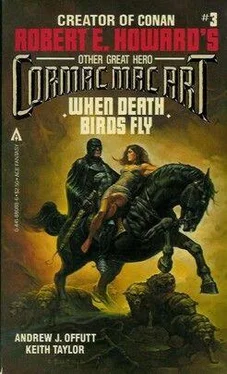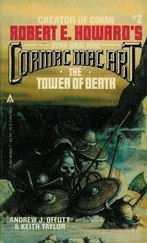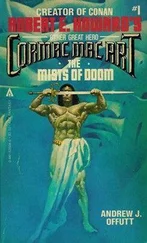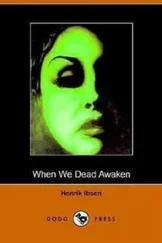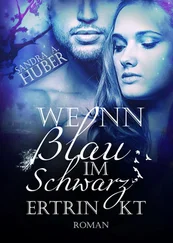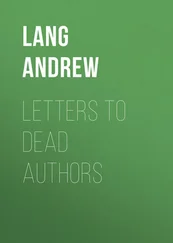Andrew Offutt - When Death Birds Fly
Здесь есть возможность читать онлайн «Andrew Offutt - When Death Birds Fly» весь текст электронной книги совершенно бесплатно (целиком полную версию без сокращений). В некоторых случаях можно слушать аудио, скачать через торрент в формате fb2 и присутствует краткое содержание. Жанр: Фэнтези, на английском языке. Описание произведения, (предисловие) а так же отзывы посетителей доступны на портале библиотеки ЛибКат.
- Название:When Death Birds Fly
- Автор:
- Жанр:
- Год:неизвестен
- ISBN:нет данных
- Рейтинг книги:5 / 5. Голосов: 1
-
Избранное:Добавить в избранное
- Отзывы:
-
Ваша оценка:
- 100
- 1
- 2
- 3
- 4
- 5
When Death Birds Fly: краткое содержание, описание и аннотация
Предлагаем к чтению аннотацию, описание, краткое содержание или предисловие (зависит от того, что написал сам автор книги «When Death Birds Fly»). Если вы не нашли необходимую информацию о книге — напишите в комментариях, мы постараемся отыскать её.
When Death Birds Fly — читать онлайн бесплатно полную книгу (весь текст) целиком
Ниже представлен текст книги, разбитый по страницам. Система сохранения места последней прочитанной страницы, позволяет с удобством читать онлайн бесплатно книгу «When Death Birds Fly», без необходимости каждый раз заново искать на чём Вы остановились. Поставьте закладку, и сможете в любой момент перейти на страницу, на которой закончили чтение.
Интервал:
Закладка:
Sigebert screamed like a soul in hell when he saw what would be done. His bulging eyes stared at the ceil, but he saw it not. Horribly rearranged, his body, too, bulged unnaturally.
Many were the things he might have seen: Black Thorfinn, writhing in agony, screaming likewise while infection bloated his belly and death’s clean mercy was withheld from him; or Cathula’s mother torn apart by hounds while her daughter watched, or that daughter’s later cruel reduction and use; or Count Bicrus of Nantes struggling across a tiled floor in his blood… or a score of other victims of whose fates the pirates knew naught. Uncounted treacheries lengthened the list of Sigebert’s crimes.
He might have beheld any or all of his victims, come from the grey lands of death to witness their murderer’s end. He did not.
He beheld great, misty spaces. An emptiness beyond his little comprehension. Bounding out of the mist came a hunting pack fit for nightmares; pure white hounds, save for the ears of them that were red as their gaping fanged mouths and glowing eyes. Coursing down through the night to harry the soul out of his body; to hunt it fugitive through nine eternities. Behind those beasts, towering on a great horse with flaring nostrils, came a shadow-cloaked Huntsman whose head was crowned with royal antlers. Sigebert saw what few saw; the terrible Lord of Death, god of the Celts of Britain and Armorica and Gaul and other lands as well.
And Sigebert knew, and his final screams formed coherent words while the bones burst from his blood-eagled body.
“The hounds!-aahhhh, mercy, no, no, the hounds, the hounds!”
Syagrius did not flinch to see the thing done. He had intended himself to have the traitor crucified, a death equally dreadful and longer drawn out. He saw only justice. Not without pleasure, he watched Sigebert die.
They found Lucanor in one of the upper chambers. He was unmistakably dead, shriveled as if by fire though neither charred nor blistered. Had his neck been cut, as by a tight-drawn chain, all round? None could be sure.
So, then. King Veremund would be glad to learn that death had been done on the mage who had destroyed his queen, body and mind and soul. Cormac and Wulfhere cared but little. The man who had died at the head of the marble stair had been more dangerous than forty such as the mage, for all Lucanor’s powers of sorcery.
Count Bicrus’s body they discovered below. It was wrapped, with cynical pretense at respect, in a shroud.
“It is over then,” Syagrius said wearily. “Poor Bicrus was the last hope left me. I might as well have fled south at once. I have achieved little save to spend lives and burn a part of the city.”
“Blame Sigebert for that, not yourself,” Wulfhere said gruffly. Almost he clapped the Roman on the shoulder, but remembered the man’s freshly splinted arm. “Let the city-and Gaul-take care of itself, as it will. I and Cormac mean to go away from here and get mightily drunk until dawn, and it’s my counsel that ye do the same. What say ye?”
Consul-King said to pirate. “I say lead on!”
24
The long dusty road shimmered in summer’s haze. At its end lay the town of Vannes, and the enclosed stretch of water known as the Mor-bihan, with the open sea behind it. There waited the lean pirate ship named Raven . Other ships lay in there too, to carry a deposed king and his followers into exile.
The death birds had flown. The Raven of the sea and the ravens of war; the owl had flown and fallen to a better huntsman, and the eagle of Rome and at last the stern eagle of the northlands. Now there was only Raven .
Big Gothic war-horses paced steadily toward the waiting ships. Their hooves clopped, lifting dust in yellowish puffs.
Three men rode at the cavalcade’s head, mailshirted and helmed. One carried his arm in a sling and yet sat his horse as if born to the saddle. His two fellows rode more clumsily. One, dark and grim with a scarred face, trailed from his helm a horsehair crest as white as the Roman’s was red. Nor looked he happy in the saddle. The third man, whose horse laboured most, was a giant in a mail corselet and a northron’s casque on his head.
Behind them, awkwardly, rode a round score of Danes, shifting their buttocks in the saddles and wishing for oar-benches instead. After them paced fourscore and two Gothic horsemen. Silent they were, not even grinning at the sight the Danish pirates made ahorse. All showed signs of hard travel and harder fighting. Dusty they were, and sweaty, and with wounds on them.
Cormac glanced back. He knew this tired procession represented history amaking. The Vandals misruled Carthage; between them the Visigoths and Sueves held Hispania; Odovacar the German was master of Italy and Rome itself; and from Britain the last legions had been withdrawn threescore years agone. The splendours of southern Gaul belonged to the Goth and to the Burgund. Gaul’s western peninsula was become again what it had been before Rome’s first Caesar; wholly a land of Celts. Syagrius had been the last consul in Gaul. The “Roman Kingdom” of Soissons had been the last, the very last fragment of the Western Empire.
Now it too was gone, fallen to red-handed barbarians. Rome had conquered and occupied Gaul; Rome rode away at Cormac’s side.
Was naught to mac Art, true. Still, the mood of the man with whom he rode communicated itself to him. Gone, all gone. He fell suddenly prey to the inborn, irrational nostalgia of the Gael. A sense of evanescence was on him, and of things passing away. Blood fertilized soil and only Time conquered.
Wulfhere drew him back with a grunt and an indicative nod. By the roadside up ahead, a small group tarried. Cormac recognized the woman; tiny she was with broad hips and erect, graceful carriage, with strands of grey in her flowing black hair, despite her youth. What, he mused, should Morfydd be doing out here at this time?
To Syagrius he said quietly, “Do give the halt by yon people, will ye?”
The Roman did not question, but gave the order. Danes sawed and tugged without competence at their horses’ mouths so that the animals milled even while the Goths smoothly drew rein. With exchanged glances and no words, they aided the Danes in quieting their mounts.
“Good hail, Cormac,” Morfydd said. “I foresaw we should meet here.”
“Give you good day, Morfydd. It’s news you bring?”
“I traveled hither in hopes of preventing it.” She indicated a litter on the roadside grass at her feet. It bore a motionless shape covered by a cloak. “Cathula would not listen. She ran away, Cormac. Not from her enemies this time, but from her friends. By the time I learned she was gone, she had too long a start. Child, child!” Morfydd shook her head. “She walked to the standing stones in Broceliande, to do what I forbade. You remember?”
“Aye,” Cormac answered, his mouth going dry. “A thousand years agone it seems… but I remember. And the rest of it happed? That which you warned of?”
“You guess aright.” Morfydd’s voice was sorrowful. With respect, she drew the cloak from Sigebert One-ear’s last victim.
Cormac looked. A wind from the outer gulfs seemed to blow past him and chill his flesh. Only a girl! None would have believed that Cathula had died such, a young girl. The wind-stirred hair framing her face had gone white. Her body was shrunken as with great age; her open eyes were opaquely filmed as with cataract. Tough-souled though mac Art was, his thin lips writhed involuntarily back from his teeth. He sucked a short breath between them. Aye. Sigebert’s last victim, drained of its soul.
“She tried to summon the Wild Hunt, herself alone?” he said, asking for confirmation, not because he doubted. “This was the result?”
Читать дальшеИнтервал:
Закладка:
Похожие книги на «When Death Birds Fly»
Представляем Вашему вниманию похожие книги на «When Death Birds Fly» списком для выбора. Мы отобрали схожую по названию и смыслу литературу в надежде предоставить читателям больше вариантов отыскать новые, интересные, ещё непрочитанные произведения.
Обсуждение, отзывы о книге «When Death Birds Fly» и просто собственные мнения читателей. Оставьте ваши комментарии, напишите, что Вы думаете о произведении, его смысле или главных героях. Укажите что конкретно понравилось, а что нет, и почему Вы так считаете.
